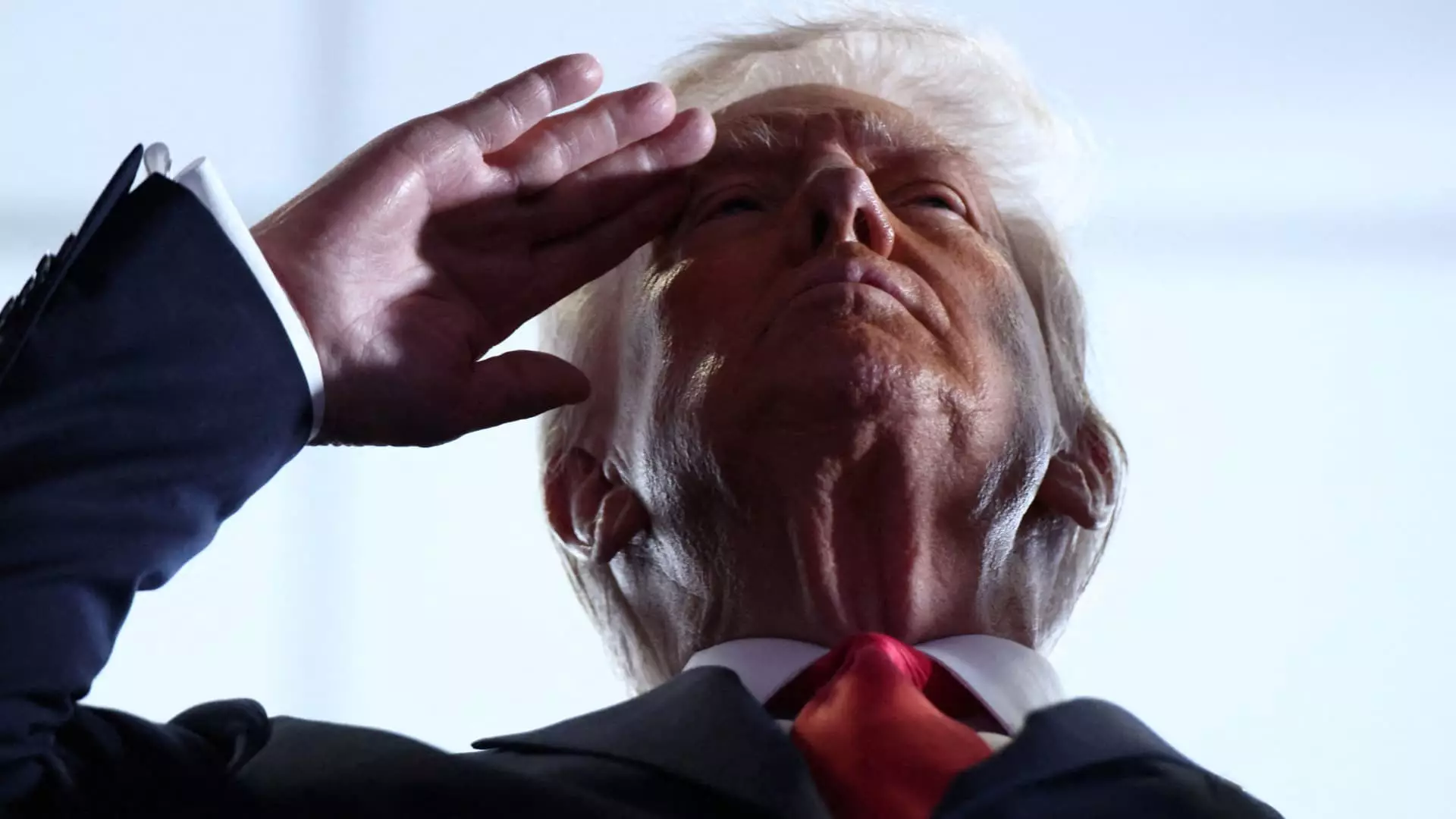As President Donald Trump embarks on his second term, a recent CBS News/YouGov poll suggests that his job approval ratings have reached noteworthy levels, reflecting a complex and multifaceted public perception. With 53% of U.S. adults expressing approval of his performance thus far, this article dissects the implications of these ratings, the underlying concerns voiced by respondents, and the shifting landscape of political expectations relevant to Trump’s presidency.
Trump’s polling results are indicative of an early boost in support compared to the infamous beginnings of his first term. The characterization of Trump by many as “effective,” “focused,” and “energetic” presents a sharp contrast to the polarizing views that characterized his previous presidency. However, it is crucial to note the distinct lack of consensus regarding his perceived compassion, with only 37% of respondents including this trait in their assessments. This divergence hints at a broader national dialogue about the qualities expected from leadership and the value placed on empathy in governance.
The CBS poll’s margin of error (±2.5 percentage points) raises interesting questions regarding how representative this data truly is. Conducted shortly after a series of executive actions, the spike in approval could reflect a temporary rallying effect. It remains crucial to watch whether these numbers hold steady over time or if they are contingent on current events and media cycles.
A significant 70% of participants in the poll asserted that Trump is fulfilling the promises articulated during his 2024 campaign. This metric of accountability is essential in gauging not only Trump’s governance style but also how constituents interpret the effectiveness of political commitments. Despite this, there are notable areas of concern that could jeopardize this positive perception.
Concerns regarding the implications of Trump’s policies on inflation and trade underscore a critical dissonance in public opinion. More than half of the respondents (51%) believe that his administration’s strategies are likely to result in higher food and grocery prices. This troubling outlook—where two-thirds of the populace feels the administration is neglecting the affordability of goods and services—could be detrimental to future electoral support if these economic issues persist. The reality of tariffs, a key aspect of Trump’s trade policy, has also drawn significant skepticism; a majority perceives these moves as likely to inflate consumer costs rather than stimulate job growth.
Interestingly, Trump’s immigration policies received relatively favorable evaluations, with 59% approval for his plans to deport undocumented immigrants and 64% backing military deployment to the southern border. These ratings reflect a fragmentation of American attitudes, revealing that domestic security remains a top concern for many voters in this ongoing debate.
Furthermore, views on Trump’s handling of international conflicts, such as the Israel-Hamas situation, provide a window into partisan divides. The modest approval of 54% stands juxtaposed with the staunch opposition from Democrats and liberal demographics, reinforcing the notion that Trump’s foreign policy initiatives continue to generate significant divergence in public opinion.
The establishment of the Department of Government Efficiency, led by billionaire entrepreneur Elon Musk, poses a modern twist on governmental restructuring. This initiative has garnered mixed feelings, highlighting a public fatigue with bureaucratic inefficiencies. Although a plurality of respondents supports reducing spending and curtailing foreign aid, deeper examination reveals ambivalence about the overall vision of governmental streamlining proposed by Trump’s administration.
While measurable accomplishments have impressed some voters, the context of their support raises pertinent questions about the future trajectory of Trump’s policies. As he continues his second term in office, sustaining public approval will depend not only on the effectiveness of his initiatives but also on his ability to address the nuanced concerns surrounding economic stability and social compassion.
Trump’s emergent approval ratings illustrate a complex image of a president striving to balance his promises with the realities of governance. While supporters nod to his effectiveness and focus, critical issues such as inflation, trade policy, and compassionate leadership loom large on the horizon. As the political landscape continues to evolve, it remains imperative for Trump and his administration to navigate these challenges adeptly to maintain and potentially grow public support amid a divided populace. The trajectory of his second term, bolstered by understanding and flexibility, will ultimately dictate his legacy and the perception of his administration in American politics.


Leave a Reply